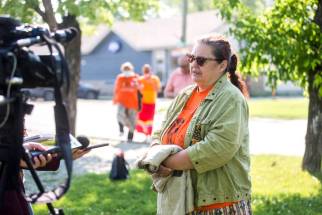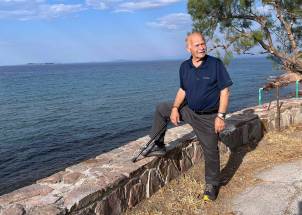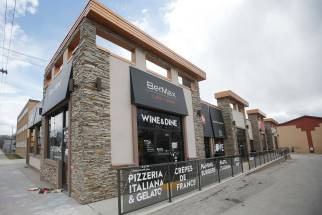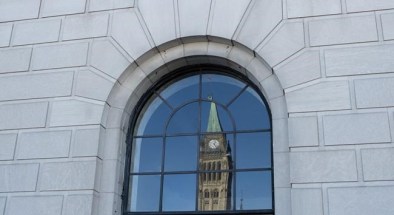‘I can’t bring him home’: bureaucratic delay leaves body of man who died on U.S. flight in Winnipeg for month
Read this article for free:
or
Already have an account? Log in here »
To continue reading, please subscribe:
Monthly Digital Subscription
$19 $0 for the first 4 weeks*
- Enjoy unlimited reading on winnipegfreepress.com
- Read the E-Edition, our digital replica newspaper
- Access News Break, our award-winning app
- Play interactive puzzles
*No charge for four weeks then billed as $19 plus GST every four weeks. Offer only available to new and qualified returning subscribers. Cancel any time.
Read unlimited articles for free today:
or
Already have an account? Log in here »
Hey there, time traveller!
This article was published 19/07/2022 (889 days ago), so information in it may no longer be current.
On a June 23 flight home to California from Greece, 75-year-old Leonidas Dimou died of a heart attack above Manitoba, resulting in an emergency landing in Winnipeg.
The Dimou family’s tragedy has since become a weeks-long fight through bureaucratic red tape to repatriate his body from a Winnipeg funeral home.
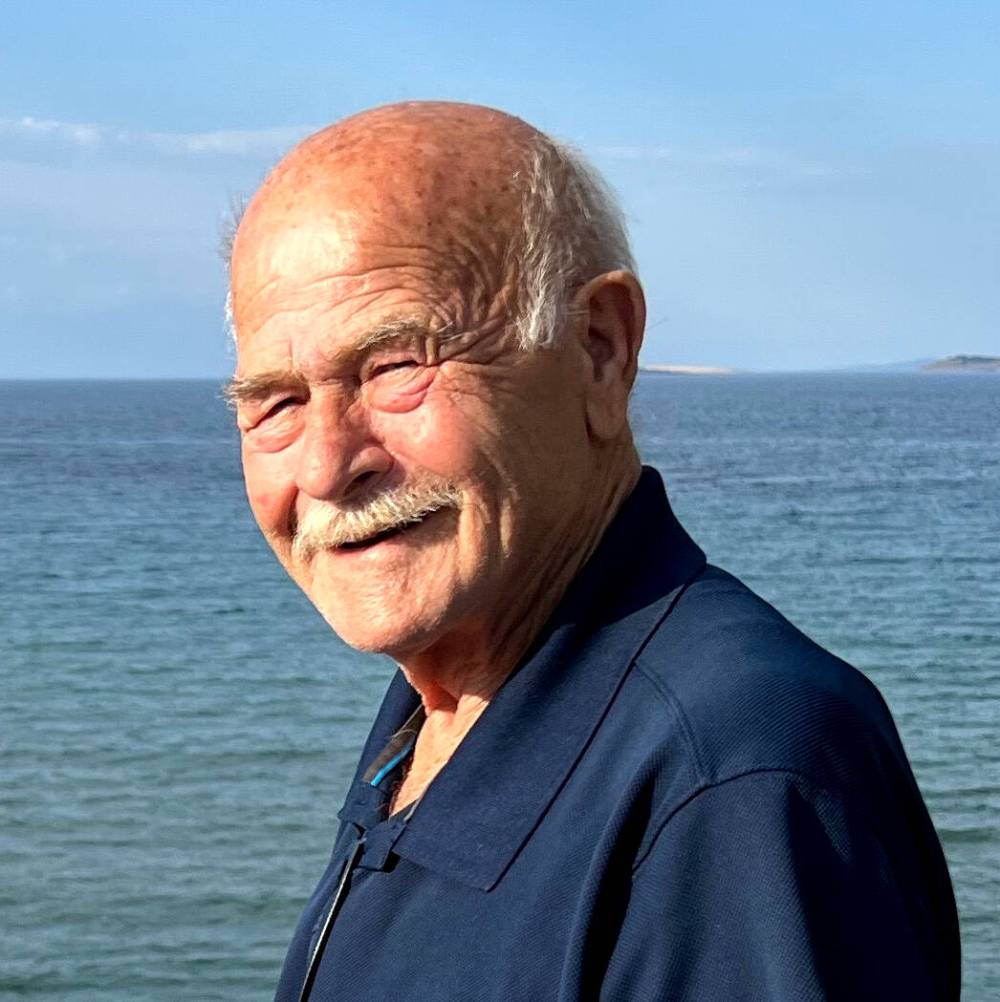
“I can’t bring him home, they’re giving me a hard time,” son Nik Dimou told the Free Press from California on Wednesday.
“It shouldn’t be hard — just a paper to sign and give to the funeral director. That’s all you have to do. How hard is it? What does it take to send a body home?”
To ship a body out of Manitoba, the funeral director working with the family needs to receive a death certificate from the province’s Vital Statistics Branch. While the Dimou family lives in California, Dimou’s death is registered in Manitoba because it is technically where he died.
After receiving the certificate that confirms the cause of death, a copy is sent to the communicable disease control department, which confirms the body is safe and then approved for shipping.
Mike Vogiatzakis of Voyage Funeral Homes said his hands have been tied, even after paying a rush fee to receive the death certificate within two days.
It was filed immediately after the home received the body, he said, however, Vital Statistics ignored multiple calls and emails from his staff over three weeks — a “disgusting” lack of compassion for a family unable to fully grieve.
“It shouldn’t be hard– just a paper to sign and give to the funeral director. That’s all you have to do. How hard is it? What does it take to send a body home?” – Nik Dimou
“He’s been sitting in our work, literally decaying because we embalm… to, really, prepare a body from the time of death to the time of a funeral service,” Vogiatzakis said.
Within one hour of the Free Press seeking comment from a provincial spokesperson on the issue, Vital Statistics contacted Vogiatzakis to say the certificate was ready.
It’s a sudden response after a long delay that should never have happened, Vogiatzakis said, adding the response from communicable disease control is still forthcoming.
“This is ridiculous, how Vital Statistics is treating people. How’s it fair that, for paperwork that took them an hour to do, if even that, we have a poor family’s father pretty much unviewable now?” the funeral home director said.
The Vital Statistics website listed its average turnaround time as just over a week in late June and early July.
“He’s been sitting in our work, literally decaying because we embalm… to, really, prepare a body from the time of death to the time of a funeral service.” – Mike Vogiatzakis
When asked to explain how a weeks-long delay in receiving a death certificate could occur, an emailed statement from the province said applications can be delayed if they are incomplete, have errors or aren’t connected to a registered death.
The spokesperson said the province wouldn’t comment on the specifics of the Dimou case.
Despite the naturally close relationship between funeral directors and Vital Statistics, Vogiatzakis said there is no direct line of communication.
“It’s not the first complaint you hear about Vital Statistics, but this isn’t a birth certificate or a marriage certificate,” he said. “This is a death certificate that people depend on to have their funeral on the other end and have some type of closure for the community that this gentleman lived in all his life.”
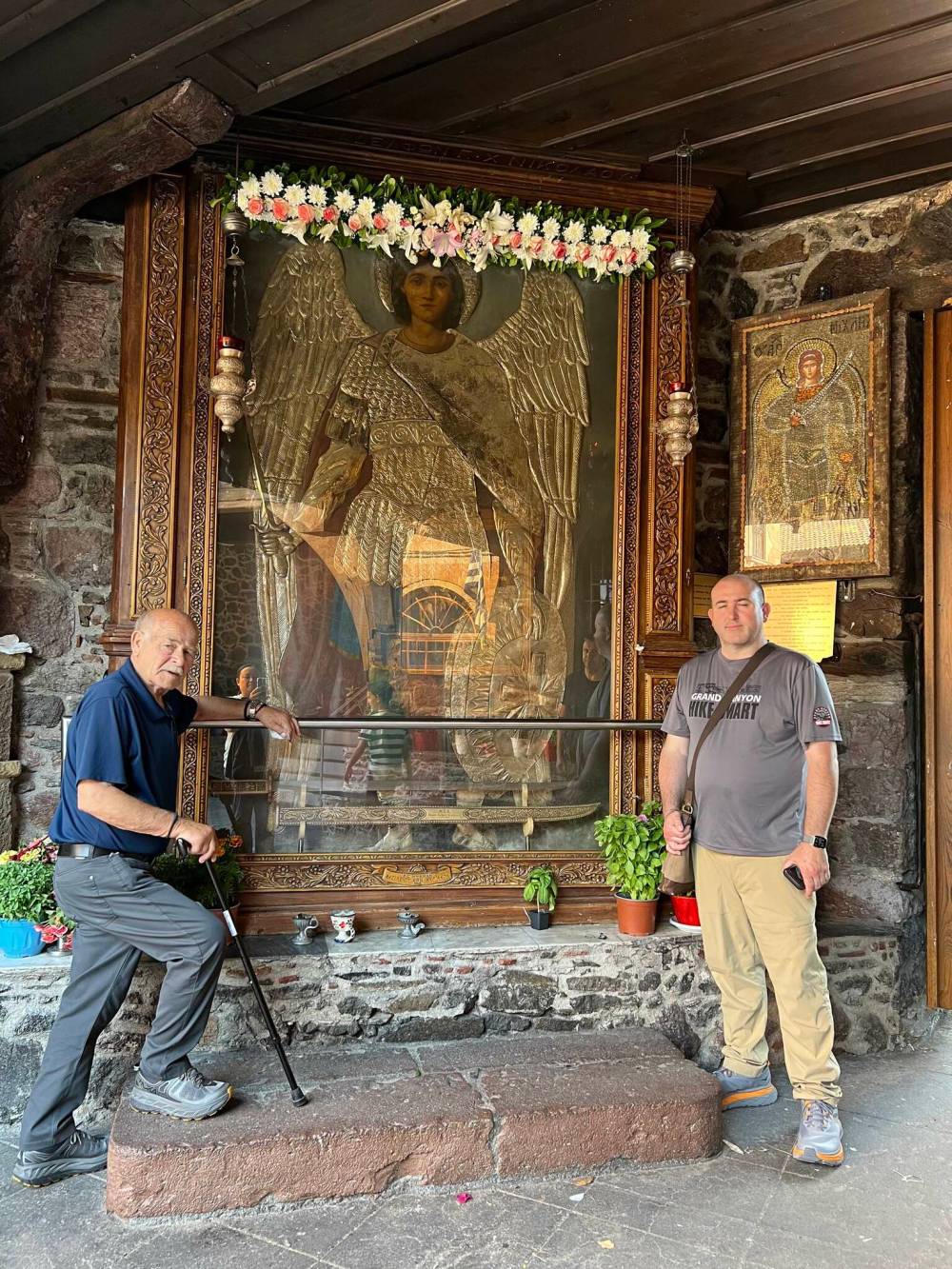
Nik Dimou described his father as a kind, religious man who made friends easily and was well-loved within California’s Greek community and beyond. He lived with his son’s family, after his wife died a few years earlier.
“I want to bury him next to home. I want to see my father, I want to visit him at the grave,” he said.
The delay has taken away the family’s ability to bury Dimou in line with its religious beliefs: Eastern Orthodox memorials include special services on multiple occasions, including the third, ninth and 40th days after death.
The family has lost their chance to hold an open-casket service, Nik Dimou said, adding he’s afraid he won’t be able to properly bury his father by the 40th day, a service to commemorate his place in heaven.
“My dad was a peaceful, wonderful man here in America. Everybody loved the guy, he was gentle,” he said. “And then we get people (in Manitoba) treating us like we’re trash.”
Nik Dimou said after years of hearing positive things about Canada, he’s been left with mixed feelings: while he has received unrelenting support from Vogiatzakis (who he found by reaching out to Manitoba’s Greek community), airport officials and other locals, he’s shocked his father’s body has been allowed to sit so long with no communication from the provincial level.
He doesn’t plan to push the issue further after the body is returned to California: forgiveness, the son said, was a virtue his father extolled.
Vogiatzakis said he never seen something like this happen before in his 43-year career: “What a black eye for Manitoba.”
malak.abas@freepress.mb.ca

Our newsroom depends on a growing audience of readers to power our journalism. If you are not a paid reader, please consider becoming a subscriber.
Our newsroom depends on its audience of readers to power our journalism. Thank you for your support.


